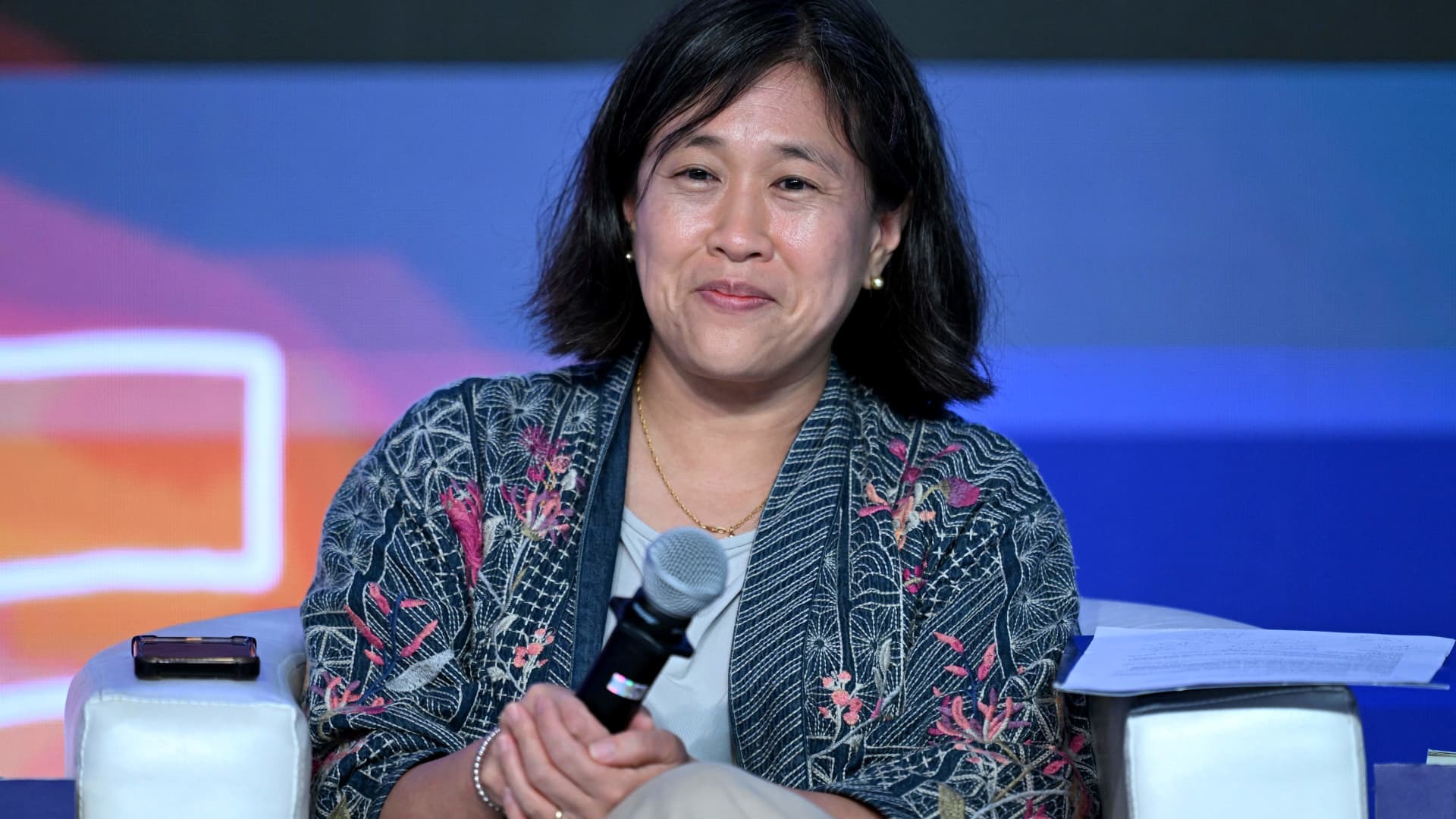U.S. Trade Representative Katherine Tai said the U.S.-India relationship is reaching new heights as the two align “across all the policy areas.”
While Washington has long seen potential in its trade relationship with New Delhi, “we just couldn’t figure out how to tap it,” Tai told CNBC’s Martin Soong on the sidelines of the B20 Summit in New Delhi, India.
“So many of my predecessors experienced quite a bit of frustration working on this relationship and it wasn’t because of a lack of desire or a lack of trying,” Tai said. “It’s certainly true that today, this relationship is experiencing new heights.”
The U.S. and India are closer now than ever before, but that relationship could be further strengthened.
In June, the two countries agreed to terminate WTO disputes on certain U.S. products such as walnuts and apples. The decision came during Indian Prime Minister Narendra Modi’s official visit with U.S. President Joe Biden.
“Many of [these tariffs] have been pending for years and we’ve agreed to bury the hatchet on those,” Tai said.
“So we are constantly striving to outdo ourselves at every stage … not just to resolve long standing tensions in the past, but now to turn our minds to where the synergies are between our economies and how we can complement each other’s strengths to build out into the future,” she highlighted.
In a joint statement in June, Modi expressed “India’s interest towards being recognized as a Trade Agreements Act-designated country by the United States to further enhance the integration of both economies and to further promote trade and investment between two countries.
While a traditional free-trade agreement can be “tremendously powerful in accomplishing certain goals” especially in liberalizing trade, Tai said that framework also comes with costs.
She explained that the U.S. and India are examining how they can adapt “approaches from a traditional, fully comprehensive liberalizing model, to one where we can be more strategic.”
The U.S. trade representative said Washington is looking for a “different kind of win-win outcome” in its relationship with India, “where we can figure out how we can complement each other and make ourselves more secure and resilient, and how we can industrialize and develop.”
“I actually think that India may be a very unique and adaptable partner for these purposes. Certainly look forward to seeing where we can go with this,” Tai said.





